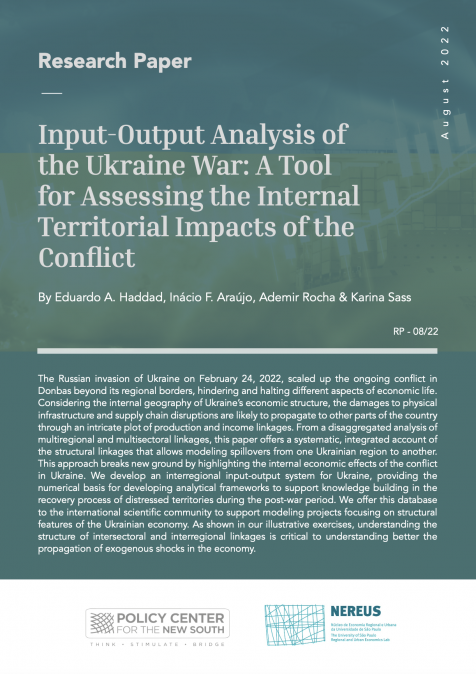Publications /
Book / Report
Le partenariat Afrique Europe fait son chemin depuis l'adoption de la stratégie commune Afrique-UE et la négociation complexe des Accords de Partenariat Economiques. L’évaluation des volets commercial, financier et humain de ces relations multidimensionnelles fait ressortir la persistance de grands déséquilibres dans les échanges commerciaux de biens et services, des tensions dans la gestion de la mobilité humaine et des dysfonctionnements dans les mécanismes institutionnels de partenariat.
Une nouvelle vision de long-terme du Partenariat Afrique-Europe devait être négociée. Le 5ième Sommet d’Abidjan (29-30 novembre 2017) s’est tenu dans un contexte où les relations économiques entre l’Europe et l’Afrique se sont relâchées, les échanges de l’Afrique se sont diversifiés notamment avec l’Asie et les pays émergents et où le « Brexit » a introduit une dimension d’incertitude dans l’avenir de ces relations.
Le thème du Sommet : « Investir dans la jeunesse pour accélérer la croissance inclusive et le développement soutenable du continent» répondait à une grande préoccupation des pays Africains. Mais encore une fois c’est la question de la migration, et notamment la maitrise et le contrôle des flux vers l’Europe qui a monopolisé une large partie des concertations. Le Sommet a-t-il réellement répondu aux ambitions de relance d’« un nouveau élan pour le partenariat Afrique-UE » ou d’« un coup d’accélérateur au développement » ?
Avec la refonte des relations UE-ACP prévue pour février 2020, il est urgent de repenser les relations de l’Europe avec l’Afrique et proposer des éléments de refondation et de construction d’un vouloir vivre collectif. L’ouvrage explore les leviers d’actions pour un renouveau du partenariat: la priorité éducative, la formation des compétences et des entreprenants ; la création d’emplois pour les jeunes via le développement territorial ; l’insertion dans les chaînes de valeur mondiales en jouant sur la préférence régionale ; le soutien à l’intégration régionale, le développement de filières agricoles de proximité ; la coopération multi-secteurs dans l’Energie ; la promotion des PPP dans les infrastructures ; la relance des APE ; le renforcement de l’attractivité des IDE ; la gestion conjointe de la mobilité humaine ; la mobilisation de ressources alternatives de financement....
Dans un environnement en mutation, le Maroc renouvelle sa politique continentale en mettant en œuvre une nouvelle stratégie tenant compte des défis communs, de la formulation d’intérêts partagés dans un esprit gagnant-gagnant. Les enjeux des pays africains sur les questions majeures sont aussi ses propres enjeux (diversification économique, développement humain et inclusif, sécurité, renforcement des infrastructures, gestion de la migration…). Dans une Afrique en mouvement, ambitieuse par ses ressources et la compétence de ses élites il affirme sa volonté de contribuer au décollage du continent africain et à la redéfinition de relations plus équilibrées avec l’Europe.











